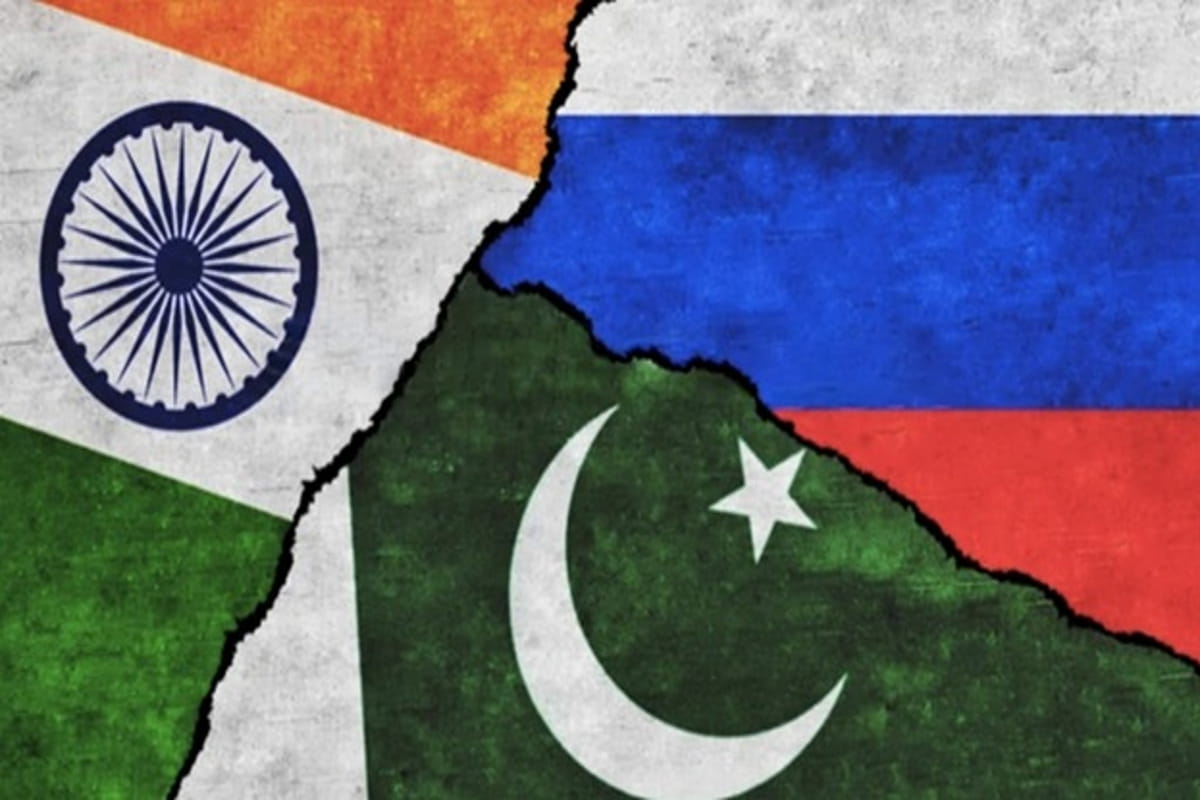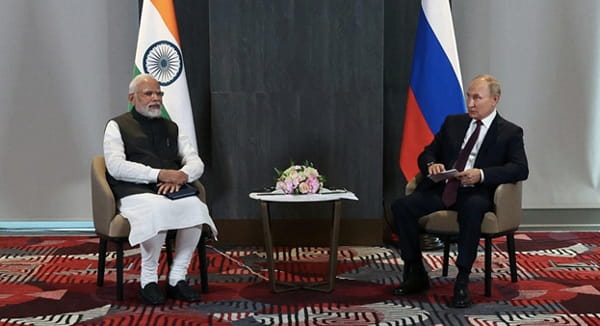
Representative image. | 2025 RUSSIA'S PIVOT TO ASIA.

The Russian position during the last round of escalation between India and Pakistan should have been of no surprise for two reasons. First, no third party had any capabilities to intervene until the relevant steps were taken by both sides during the conflict. Claims about mediation success before that seem to be nothing but boasting.
Outside the Comfort Zone
As tensions between India and Pakistan saw another round of escalation, the Russian expert community found itself caught in the crossfire: both parties expected Moscow to express a more proactive position and even take a stance in the conflict. Russian official position – condemnation of terrorist attack in Pahalgam and call on both parties to restrain from escalation with further proceeding to resolving differences through political and diplomatic means – satisfied no one and raised speculations that Moscow abstains so as not to harm its relations with Islamabad and Beijing. There were some other experts in India who saw some ‘real’ reasons behind Russia not supporting India against Pakistan.
Amidst this analysis, something important was missed by the expert community. The Russian position was intended to give out a clear message: no external power can resolve the issues between India and Pakistan but the parties themselves involved. These considerations derive from some specific observations with regards to regional security dynamics and Russian strategic culture.
The Twain Shall Never Meet
All the details relating to the regional security equilibrium are well-known to the audience and there is no need to list them here. We will just focus on one simple argument: both Indian and Pakistani elites are confident that their cause is right and they are highly unlikely to make any concessions with regards to their stance on the matters of critical importance to their understanding of national interest.
These matters are not the same for New Delhi and Islamabad. The Indian leadership pursues preserving its territorial integrity and sovereignty while preventing internationalisation of the Kashmir issue. Moreover, the Indian Government in New Delhi seeks to find some adequate instruments to meet threats in sub-conventional warfare: Operation Sindoor has become another milestone on this path and the Indian public seems to support these endeavors.
The perception of the conflict by Pakistan’s elites is also clear as it has been constant for decades: ideological foundations of the state imply that India will remain a national arch-rival until the dispute over Kashmir is resolved and Kashmir population is allowed to exercise their right for self-determination. This agenda unites the nation – often torn by political differences and economic hardships – and gives legitimacy to the powers that be.
These observations mean that the India-Pakistan rivalry has become an integral part of foreign policy, defence and security calculations both in New Delhi and Islamabad and its dynamics will mainly be defined by domestic factors. Any third country – be it the US, China, the Gulf states or Russia – has no leverage over such sensitive issues.
The current administration in Washington could claim credit for mediating the ceasefire but this art of the deal could manifest itself only when the strikes from both sides had already taken place and both parties considered them to be enough.
Slow and Steady Wins the Race

Prime Minister Narendra Modi and President Vladimir Putin at a bilateral meeting. | Getty Images.
The above analysis does not imply that Moscow is satisfied with enjoying a passive role in the region. Just the opposite, its increasing activities in South Asia seem to have triggered some concerns among the Indian expert community – especially when it comes to Russia-Pakistan relations, not mentioning the Russia-China-Pakistan trilateral format on Afghanistan. The latter is hardly familiar to an average political analyst in Moscow but widely discussed in New Delhi.
It should be highlighted here that these developments in Russia’s South Asia policy have nothing to do with changing priorities–the idea is rather to achieve comprehensiveness of regional vision. Moscow is likely to be a far more adequate partner for New Delhi if it were to have its own considerations on regional dynamics. This comprehensiveness is likely to contribute to the consistency of Russian strategy in the subcontinent.
It is Russian conceptual commitment to consistency – a pillar of national strategic culture in general – that underpins its neutral position during the last round of escalation between India and Pakistan. Both Indian and Pakistani expert communities would have been far more surprised if Moscow had tried to fill the space with some new initiatives to settle the conflict. It would contradict the very essence of Russia’s style of diplomacy and could raise questions on whether Moscow still sticks to its well-known and predictable stance.
As nothing of this sort took place, we could be confident enough that there would be no dramatic alterations in ties with both parties: old agreements are certain to materialise and new deals in relevant spheres are to be thoroughly discussed. Although this approach seems to be old-fashioned, does not suit the social media era and attracts few likes and reposts, it better manifests itself on the ground in a longer perspective.
Conclusion
To sum it up, the Russian position during the last round of escalation between India and Pakistan should have been of no surprise for two reasons. First, no third party had any capabilities to intervene until the relevant steps were taken by both sides during the conflict. Claims about mediation success before that seem to be nothing but boasting.
Second, Russian policy makers and the strategic community do not tend to exaggerate and dramatise the issues. The sober tone of statements from Moscow is intended to demonstrate that relevant people are following the situation and ready to discuss it in detail when the dust is settled. So far, this approach appears to have produced only tangible results since there were no inflated expectations. Hopefully, that would be the case this time as well.
(Exclusive to NatStrat)